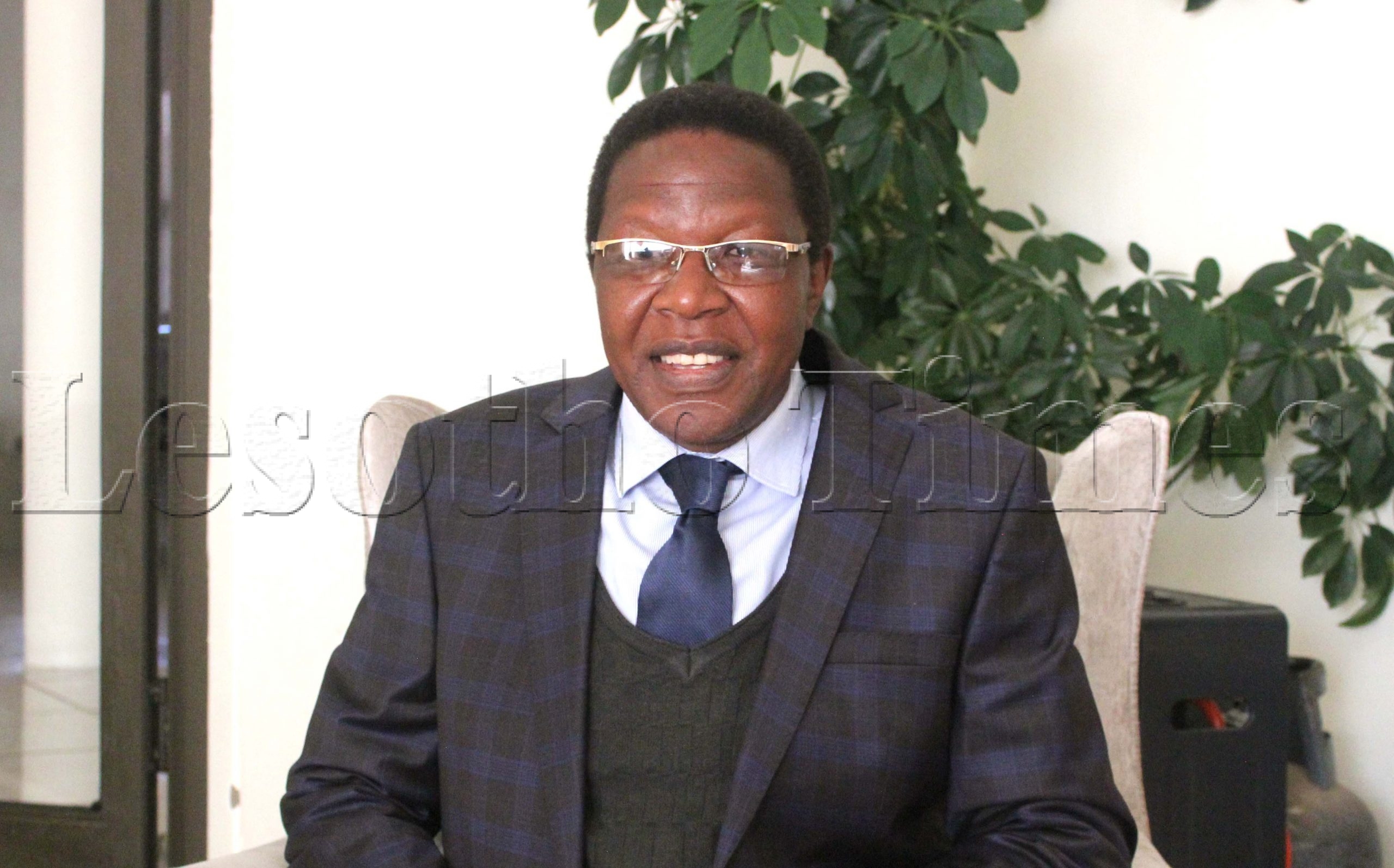Staff Reporters
FORMER Justice and Law Minister Nqosa has slammed the government for crafting the “unconstitutional” National Peace and Unity Bill.
Prof Mahao said the bill, which is aimed at facilitating the establishment of National Peace and Unity Commission to consider pardoning politicians, security forces and other high-profile individuals accused of human rights violations, will definitely be challenged in the courts of law. He did not say whether he will challenge it himself.
“The bill is unconstitutional in so many aspects and what’s even worse is that it deprives the Director of Public Prosecutions (Advocate Hlalefang Motinyane) of the powers vested in her by the constitution to prosecute cases,” Prof Mahao said in an interview with the Lesotho Times yesterday.
Prof Mahao was dismissed in April 2021 by Prime Minister Moeketsi Majoro. This after he had announced plans to dump the ruling All Basotho Convention (ABC) where he was deputy leader. He subsequently formed his own Basotho Action Party (BAP) and his ABC post was taken over by Dr Majoro who had no post in the ABC’s national executive committee (NEC) having lost out to Prof Mahao at the party’s February 2019 elective conference.
Popular Front for Democracy (PFD) leader Lekhetho Rakuoane, who is also Tourism, Environment and Culture minister, is currently doubling up as acting Justice and Law Minister in the wake of Prof Mahao’s dismissal.
Over the weekend, Advocate Rakuoane tabled in parliament the bill which aims to establish the commission which will pardon the high-profile suspects.
Prof Mahao said Adv Rakuoane should have recused himself and not crafted the bill as “he is definitely conflicted in that he was part of the government of the day when the concerned crimes occurred”.
Adv Rakuoane served as Home Affairs minister in the Pakalitha Mosisili-led seven parties coalition from 2015 to 2017. The Mosisili regime was accused of turning a blind eye to human rights violations by politicians and members of the security agencies including the June 2015 assassination of former army commander Maaparankoe Mahao. It failed to implement the recommendations of a 2016 SADC Commission of Inquiry to prosecute Lieutenant General Mahao’s alleged murderers who include former army commander Tlali Kamoli.
Incidentally, Lt-Gen Mahao was a younger brother to Prof Mahao.
Over a fortnight ago, Prof Mahao slammed SADC and in particular the head of its facilitation team to Lesotho, retired South African Deputy Chief Justice Moseneke, for attempting to coerce Lesotho into pardoning high-profile suspects and stopping the criminal trials.
“The problem created by Justice Moseneke’s Transitional Justice Commission (TJC) proposal is that the notion of transitional justice cannot be imposed on us because this country is not in transition,” Prof Mahao said.
“If ever there was a transition, it would have been between 1970 when we had a dictatorship and 1993 when we embarked on a journey of liberal democracy. But more importantly, the constitution of this country instituted in 1993 was never broken. It is there. We are governed by the constitution and its laws. So, if somebody says we are a transitional society, the question is we are transiting from where to where?
“The Constitution is there and its laws must be applied including the prosecution of criminal suspects. Those who talk of transitional justice must be aware that the victims are empowered by our constitution to seek justice.
“This is why I am saying, Justice Moseneke can’t impose his transitional justice on the people. You have to engage them and persuade them into making any compromises vis-a-vis the rights that they enjoy to seek justice. You and I know that the victims are not part of the discussions for the TJC. They are not in the National Reforms Authority and they won’t be there at the National Leaders’ Forum. So, my advice to the facilitator is that this matter (of criminal trials of high-profile suspects) will only be resolved either in the courts of law or through persuading the victims but not by a TJC. Regrettably, you cannot talk about reconciliation when you exclude the victims from the equation. It’s the most stupid thing I have ever heard about.”
Prof Mahao also said it was through such meddling to protect politicians in members states that SADC and the African Union had earned the unenviable tag of being “trade unions of leaders, not many of whom have clean records”.
“Their (SADC and AU)’s commitment to good governance is questionable. And so, when these structures are expected to hold member countries’ leaders accountable, it becomes a dubious exercise because of the underlying fraternity and interests among leaders.”
This week, he told this publication that the crafting of the National Peace and Unity Bill “clearly owed to pressure from South Africa”.
“I had several meetings with Justice Moseneke while I was still minister and I told him that it would not work if the victims do not agree.
“I have also met with the victims and they are opposed to this law in all its angles. What I can tell you is that the constitutionality of the bill will definitely be challenged,” Prof Mahao said.



